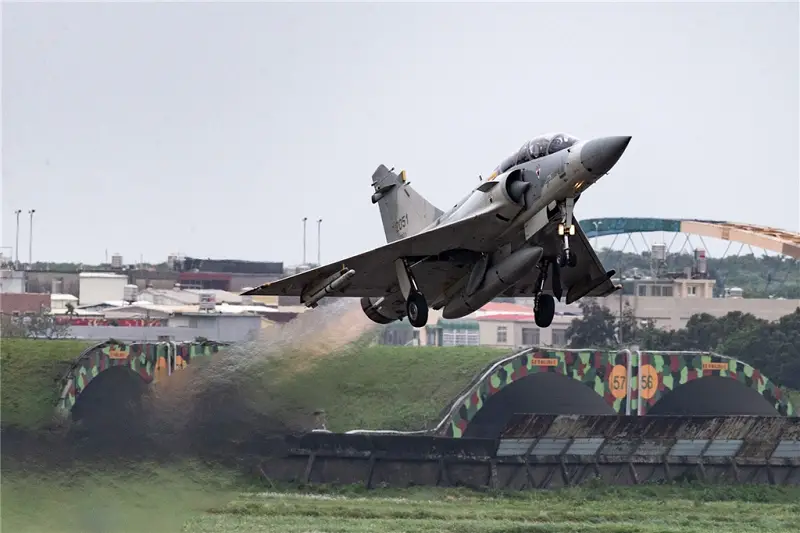In a bid to ensure strategic flexibility and hedge against potential risks, Republic of China Air Force (unofficially referred to as the Taiwanese Air Force) is considering extending the service life of a select number of its Mirage fighter jets. The decision comes as the nation’s Mirage 2000 Two Seat Fighters, which were acquired in 1997, approach the later stages of their life cycle. The move is seen as not only a strategic measure but also a safeguard against potential delays in the delivery of recently purchased fighter jets. The Air Force’s statement on Monday revealed that it has sought the expertise of French aircraft manufacturer Dassault Aviation, the creator of the Mirage series, to assess the feasibility of extending the service life of nine Mirage 2000 Two Seat Fighters. The Mirage fleet has played a crucial role in Taiwan’s defense strategy, with deployments aimed at safeguarding the island’s airspace, including its northern and southeastern regions.
One of the primary reasons behind Taiwan’s decision to extend the service life of the Mirage fighters is their unique ability to serve a dual purpose. These two-seater aircraft are not only capable of fulfilling regular mission deployments but also play a crucial role in training sessions for new recruits. This dual functionality provides the Air Force with strategic flexibility, allowing it to efficiently manage its resources and personnel. Moreover, Taiwan’s acquisition of 66 new F-16Vs fighter jets from the United States has encountered delays in delivery, raising concerns about potential operational gaps in the nation’s defense capabilities. While the initial delivery timeline was set for the end of 2023, it has since been pushed to the third quarter of 2024. This delay in the delivery of the new fighter jets underscores the importance of maintaining a reliable and operational fleet during the transition period.

Retiring the Mirage-2000 fleet without the assurance of timely F-16V deliveries could potentially create a personnel and military power vacuum. The Mirage fighters have proven to be a dependable pillar of Taiwan’s aerial defense capabilities, and their continued service would help prevent any vulnerabilities in the nation’s security landscape. The decision to engage in an evaluation process with Dassault to extend their service life is a proactive measure to ensure a seamless transition and continuity in defense capabilities. The Air Force has allocated a budget of NT$150 million (approximately US$4.77 million) for the assessment by Dassault. This expenditure is a prudent investment considering the potential risks that could emerge if the Mirage fighters were retired prematurely without a suitable replacement in place. By extending the service life of the Mirage 2000 Two Seat Fighters, Republic of China Air Force is taking a strategic and calculated step to bolster its defense capabilities.
The Dassault Mirage 2000 is a French multirole, single-engine, fourth-generation jet fighter manufactured by Dassault Aviation. It was designed in the late 1970s as a lightweight fighter to replace the Mirage III for the French Air Force. The Mirage 2000 evolved into a multirole aircraft with several variants developed, with sales to a number of nations. It was later developed into the Mirage 2000N and 2000D strike variants, the improved Mirage 2000-5, and several export variants. Over 600 aircraft were built and it has been in service with nine nations. Taiwanese Mirage 2000s were delivered from May 1997 to November 1998, and are based at Hsinchu AB. The order for 48 single-seat Mirage 2000-5EIs and 12 Mirage 2000-5DI trainers also included 480 Magic short-range air-to-air missiles, 960 MICA intermediate-range air-to-air missiles, auxiliary fuel tanks, ground support equipment, and monitoring equipment; total costs amounted to US$4.9 billion, of which $2.6 billion was for the aircraft.
















